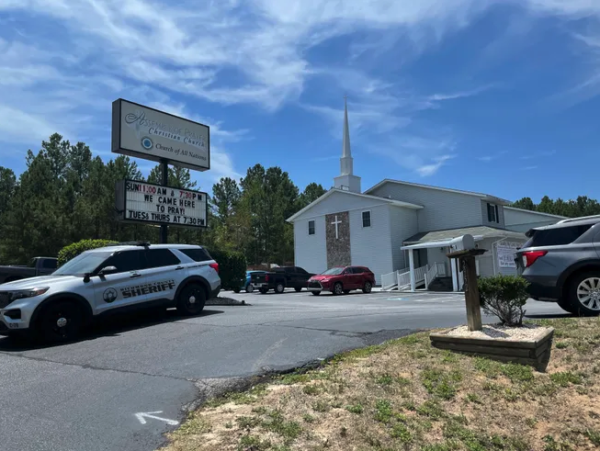
House of Prayer in Augusta, Georgia (Photo: Alexandra Koch)
Federal prosecutors are accusing House of Prayer, a national church allegedly involved in defrauding Veterans of millions of dollars in benefits, of obstructing their investigation and are pushing for contempt of court charges and fines.
According to court documents filed on April 4, the church has failed to comply with requests for documentation, hampering efforts to uncover what could potentially be one of the largest scams targeting the military community.
House of Prayer is said to have operated a complex scheme over nearly two decades, exploiting Veterans’ military paychecks, disability pay, GI Bill benefits, and VA home loans to enrich its leadership, who lived extravagant lifestyles. The church allegedly targeted Veterans near military installations, with accusations of fleecing them of education and disability benefits and home loans.
In June 2022, the FBI conducted raids on multiple House of Prayer locations across several states, including Georgia, Washington, Texas, and San Diego, all near Army bases. Although no arrests were made during the raids, House of Prayer, also known as HOPCC, has been under scrutiny for exploiting Veterans’ benefits for years. Veterans Education Success, a nonprofit overseeing GI Bill benefits, had previously alerted the Veterans Administration about potential abuse of the GI Bill program by House of Prayer.
In a letter dated August 2020, Veterans Education Success outlined various allegations against House of Prayer, including deceiving VA inspectors, overcharging tuition to Veteran students, falsifying attendance records, and preventing students from receiving completion certificates. The letter also stated instances where students were manipulated into recruiting new members and were kept enrolled longer to continue paying tuition fees.
Prosecutors have filed a complaint in a Southern District of Georgia court, alleging that House of Prayer has obstructed the investigation by refusing to provide requested documents. The church has claimed Fifth Amendment protection as grounds to withhold documentation, a defense that prosecutors argue lacks legal merit. Despite requests for comment, the church’s attorney has not responded.
Former church officials and members have described how House of Prayer pressured Service Members and Veterans to donate their pay and benefits, sometimes leading them to sever ties with their families or provide unpaid labor. The church operates bible seminaries near military bases across several states, as well as a day school and various youth groups.
The alleged scam centered around a bible college operated by House of Prayer, which received millions of dollars in GI Bill payments since 2013. Military.com’s investigation into the school revealed that it lacked proper certification processes and effectively functioned as loosely organized church gatherings. The school’s eligibility to receive GI Bill funds was only fully revoked after the publication of Military.com’s findings.
Advocates and lawmakers have raised concerns about the vulnerability of the GI Bill to exploitation by fraudulent schools. Despite its historical significance as a recruiting incentive and successful federal program, the GI Bill’s vulnerability to misuse calls for stronger oversight and safeguards.













